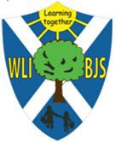History Intent Statement
Intent
"Those who do not learn from history are doomed to repeat it."
(George Santayana, philosopher and writer).
History gives us an understanding of who we are, where we came from, and of the ideas and events that have shaped us and the world around us. By understanding the past we can see trends and themes that can inform our actions and help us make responsible choices and contributions to society in the future. Study of the past can help equip us with an understanding of the contributions of different groups of people over time and to appreciate the diverse experiences which have shaped our present.
In Key Stage 1 we aim to inspire our pupils to be curious about the past, in order that they begin developing their understanding of the chronology of key historical events, their awareness of changes over time, and feel a sense of where they stand within the world’s history. We want children to ask and answer questions and begin considering different ways in which the past in represented, and to be able to talk about their learning using appropriate historical terms and vocabulary related to the passing of time. Their knowledge and skills will lay the foundations for further study and the development of critical thinking skills as they progress through Key Stages 2 and 3.
Implementation
We implement a history curriculum that fulfils the aims of the Primary National Curriculum, is progressive throughout our school, and equips pupils with the knowledge and skills necessary to continue enjoying history and making progress throughout KS2.
- In KS1, pupils are introduced to learning about changes in living memory and beyond living memory by learning about nationally significant events and people from the past, as well as people and places familiar to them, such as grandparents and their school.
- Through this study pupils will become aware of similarities and differences in ways of life of the past and present, and of where the people and events they learn about fit into British and world history. They will be able to talk about people and events of the past using appropriate historical terms and vocabulary related to the passing of time.
- Planning is centred on key enquiry questions, allowing children to begin asking and answering questions about the past, and to begin considering different ways of finding out about the past.
- History is taught as a half-termly or termly topic, focusing on knowledge and skills stated in the National Curriculum, to build an in-depth knowledge about a particular period in history, or understand how an aspect of life has changed through time.
- History topics often form the core of a cross-curricular approach to teaching, supporting and engaging our pupils with work in other subjects, including English, Art, DT and Maths. In this way, children are able to gain a richer and deeper understanding of a particular aspect of history they study.
- We aim to inspire our children to be curious about the past and its impact on the present by bringing history to life via educational trips, opportunities to talk to visitors and handle artefacts, and participate in practical activities during WOW days in school.
Impact
- Pupils should be able to describe key events in local and national history that they have learned about, and to compare aspects of their lives with those of periods they have studied.
- They should be able to talk about the past using common words and phrases relating to the passing of time, and be able to use and understand everyday historical terms.
- Pupils should understand some different ways in which we can find out about the past.
